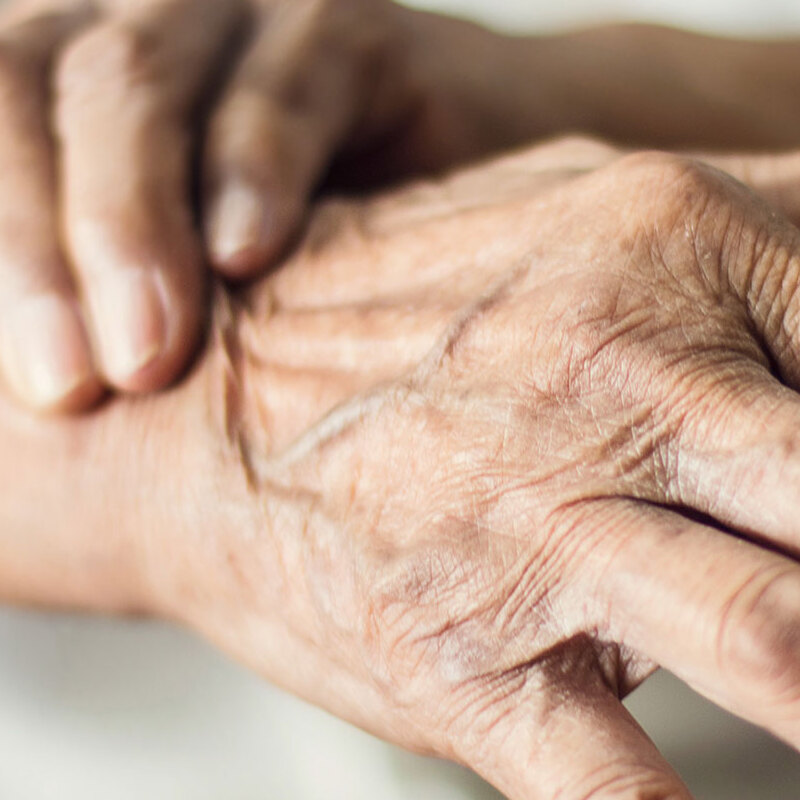Discover the distinct signs, triggers, and treatment for psoriasis and eczema to effectively manage these common skin conditions.
Normal, dry to atopic skin
Psoriasis vs. eczema: Understanding the differences
Reading time : 5 min

Psoriasis vs. eczema: how to tell the difference
Psoriasis and eczema are both skin conditions with similar appearances but with their own characteristics.
Psoriasis is a condition that causes thick and dry skin. There are 5 types of psoriasis causing almost the same symptoms in different areas.
Eczema is a common skin condition that causes dry, itchy skin and rashes. There are 7 types of eczema, but it can be hard to tell the difference between all of them as the symptoms often overlap.
Neither condition is contagious, but they can both lead to more severe conditions if left untreated.
Key symptoms of psoriasis and eczema
Psoriasis and eczema can often be mistaken for as their symptoms may look the same.
The symptoms for psoriasis include:
Red patches of skin
Thick and silvery scales
Itching and burning feeling
The symptoms for eczema include:
Intense itching
Dry skin
Red to brownish-gray patches
Discolored skin
Swelling
Scaly, crusty skin
Small and raised bumps which may leak fluid when scratched
Skin tends to be thicker and more inflamed in psoriasis than eczema. Also, the red patches are well circumscribed in psoriasis while in eczema the red areas are poorly demarcated.
Psoriasis symptoms usually develop in the following areas:
scalp
elbows
knees
lower back
face
Eczema symptoms usually develop in areas that bend like:
neck
wrists
ankles
crease of elbows and knees
Psoriasis is an autoimmune disease caused by an overactive immune system leading to the growth of too many new cells that pile up causing thick scales of dry and flaky skin.
Triggers for most types of psoriasis are usually:
genetics (risk running in families)
irritant or allergen
stress
infection or injury
smoking
obesity
vitamin D deficiency
heavy alcohol consumption
reaction to a medication like lithium or drugs for malaria
vaccination
sunburn
The causes for eczema are not fully known, but we know there is an overactive immune system reaction combined with specific genes mutation and environmental triggers.
Triggers for eczema are usually:
genetic factors
dry skin
irritants like soaps, detergents, shampoos, makeup
allergens like pollen, dust mites, pet dander, mold
stress
extreme temperatures and humidity levels associated with dry weather
foods such as dairy products, nuts, and wheat
People with psoriasis are often concerned with serious health conditions like arthritis (psoriatic arthritis), cardiovascular diseases, diabetes and inflammatory bowel disease.
People with eczema are often affected by dry and sensitive skin, asthma and allergic conditions like hay fever.
Treatment options
There is no cure for eczema or psoriasis but there are effective treatments that significantly help relieve the symptoms and prevent flare-ups. Always see a dermatologist if your symptoms worsen within a week. With a dermatologist consultation, you will be able to define which condition is affecting you and what is the best treatment.
For psoriasis the treatments can include:
Topical treatments (corticosteroids, emollients, vitamin D analogues)
Phototherapy using ultraviolet light
Systemic medications (methotrexate, cyclosporine, biologics)
For eczema the treatments can include:
Topical corticosteroids to control inflammation
Antihistamines for itch relief,
Topical calcineurin inhibitors
Phototherapy
Whether you are affected by psoriasis or eczema, remember to moisturize daily to help prevent your skin from getting dry. Choose a moisturizer with an oil or cream base and avoid water base one which dry out the skin even more
Always at your side to guide you
How psoriasis and eczema are diagnosed
Both psoriasis and eczema can be diagnosed by a dermatologist.
For psoriasis diagnosis, your dermatologist will run a physical examination and look at your medical history to find out your genetics. He may perform a skin biopsy if necessary to run out other skin condition.
For eczema diagnosis, there is a clinical examination of your symptoms completed with a review of your medical history. As symptoms can often be mistaken for psoriasis, other tests like patch testing to identify possible allergens, or blood test and skin biopsy can be performed
Preventing flare-ups
Psoriasis and eczema are chronic conditions which may come and go depending on their triggers. To prevent flare-ups there are some tips you can apply.
Psoriasis prevention for flare-ups:
moisturize daily to help the skin fight against dehydration
learn how to manage stress effectively and aim for quality sleep
Wear sunscreen every day
avoid known triggers
maintain a healthy lifestyle with a healthy diet avoiding greasy and spicy foods
Eczema prevention for flare-ups:
moisturize daily with products designed for eczema prone skin
avoid extreme temperatures
avoid allergens once they have been identified
use mild soap and detergent
Learn how to manage stress effectively
For your Dry Skin
Conclusion: Understanding psoriasis vs. eczema
Psoriasis is an autoimmune disease causing scaly, thick skin patches, mainly on elbows, knees, and scalp. It often involves other systemic symptoms due to its autoimmune nature. A burning sensation is particularly characteristic of psoriasis symptoms.
Eczema primarily appears as intensely itchy, dry, and inflamed skin, commonly located on skin folds and on hands. It is especially linked to allergies and skin barrier issues.
There is no cure for eczema but both conditions can be treated; psoriasis treatments aim to slow skin cell buildup and reduce inflammation, while eczema treatments focus on hydrating the skin and reducing itchiness.
Psoriasis and eczema require managing triggers to prevent flare-ups, but specific strategies differ due to their distinct causes and symptoms.








